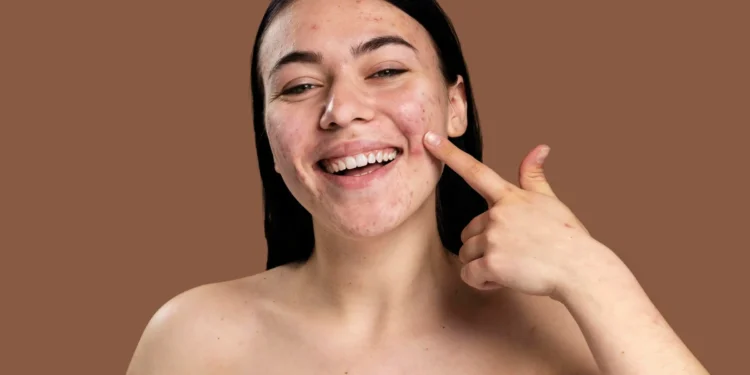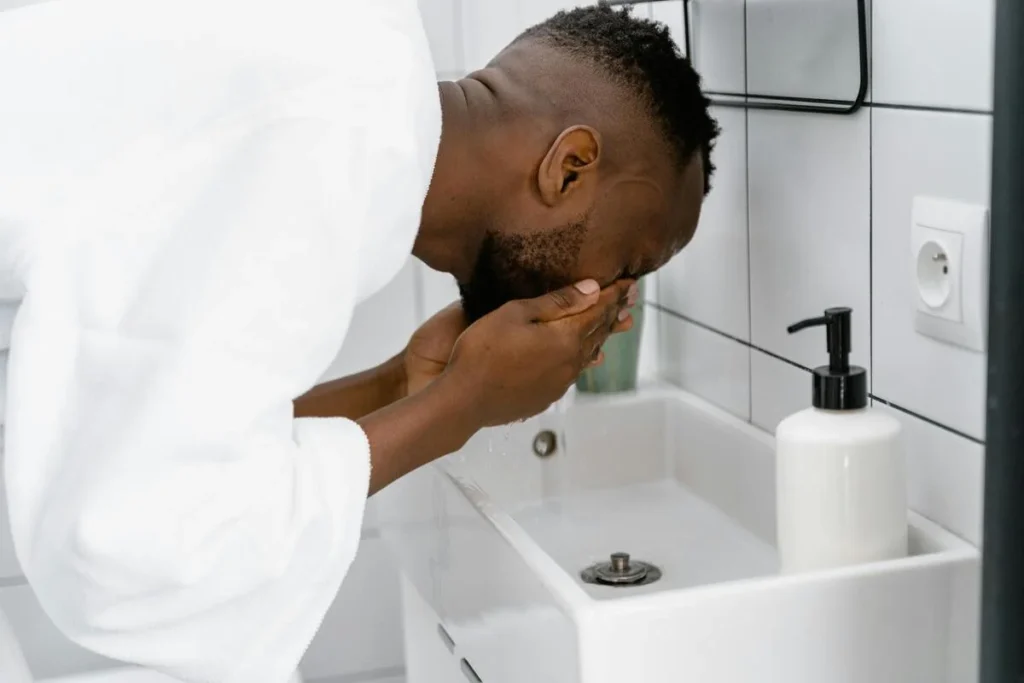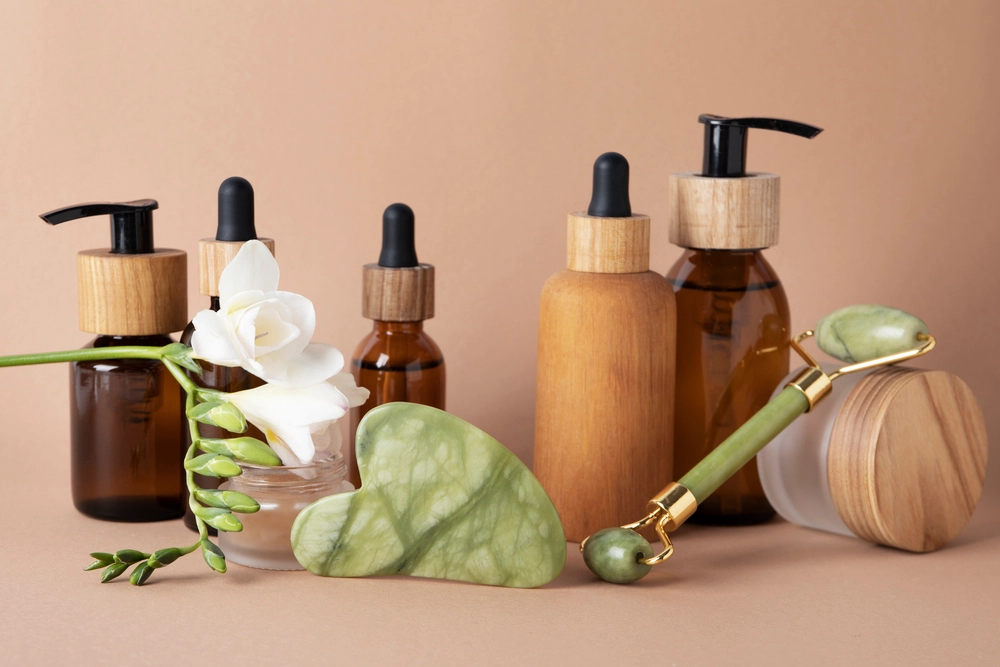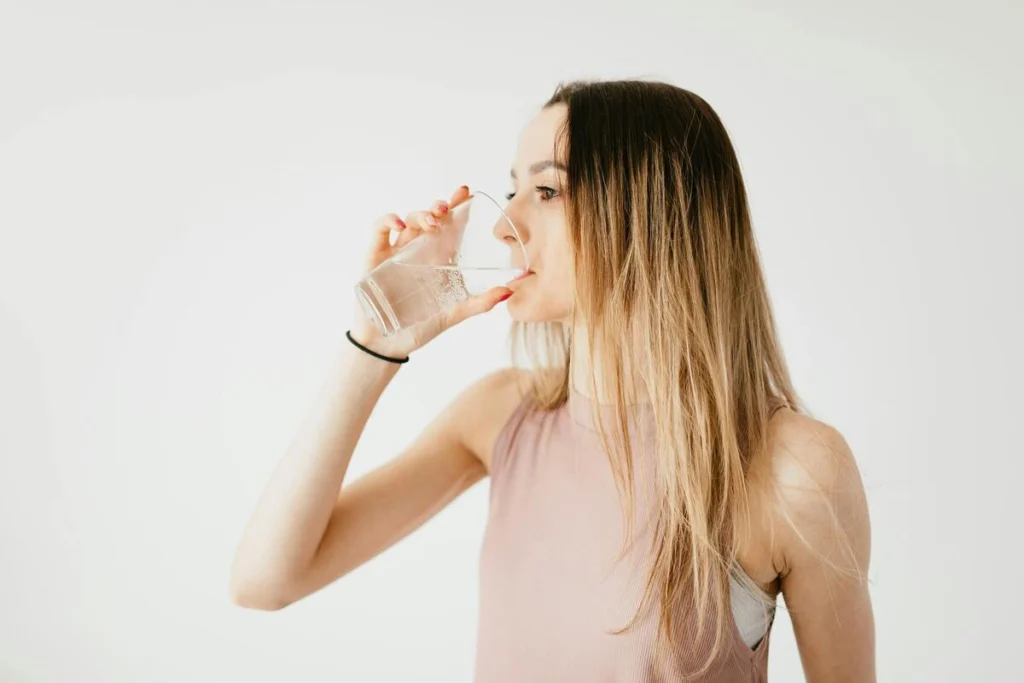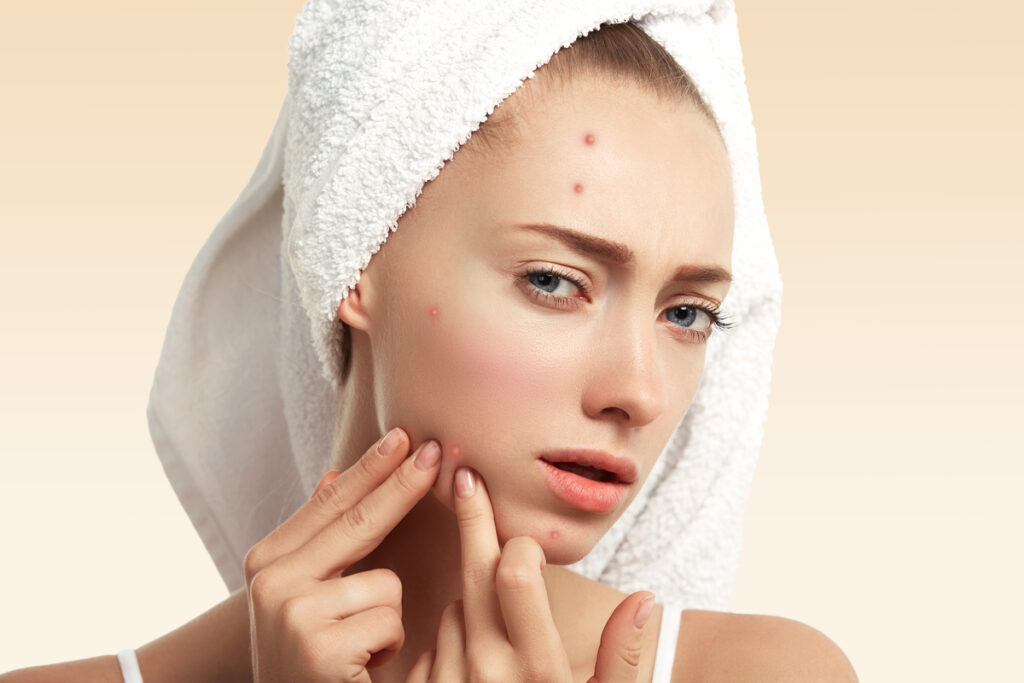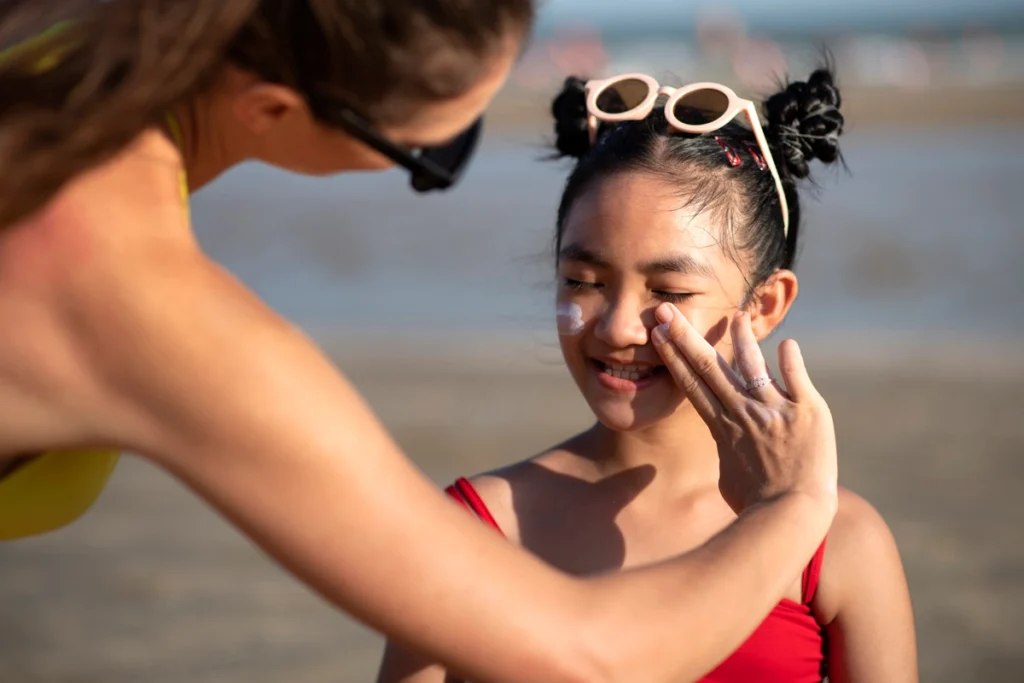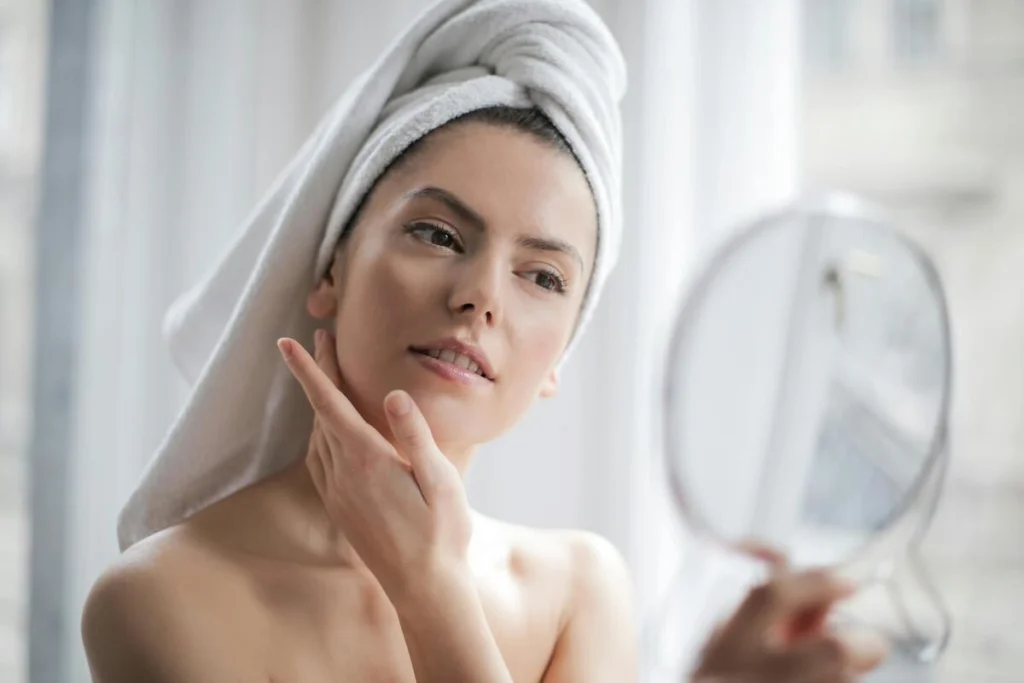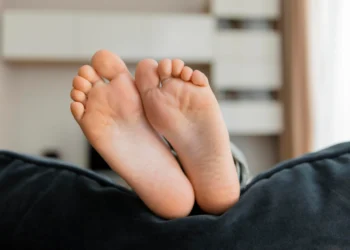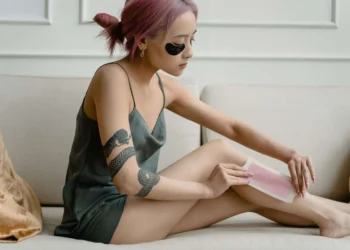Keeping pimples away and maintaining healthy skin is essential to physical and mental health. Clear skin is not only a source of self-confidence but it is a symbol of lifestyle and proper care. Untreated or improperly treated pimples can cause inflammation, pain and even scarring on the skin, impacting self-worth and resulting in lasting skin problems. Skincare & Preventive measures decrease these risks by keeping pores free, correcting oil production and protecting against pollution. Furthermore, a proper skincare regime of cleansing, hydration, sun protection and relaxation not only helps to avoid breakouts but improves the overall health, firmness and brightness of your skin. Below is an in-depth details on how to keep your skin healthy and glowing, without pimples:
Table of Contents
1. Keep Your Skin Clean
Clean skin is the main way to avoid pimples because dirt, sweat, and oil can clog pores and cause breakouts.
- Two times a day, cleanse your face with a non-comedogenic cleanser to exfoliate dirt, sweat and impurities.
- Avoid overwashing which can dries out your skin and result in excess sebum production resulting in pimples.
- Make sure you use lukewarm water rather than hot water because hot water will cause dry skin and may break out.
2. Choose the Right Products
By using skin care that is compatible with your skin type, you can significantly lessen the incidence of pimples.
- Non-comedogenic and oil-free products do not clog pores and are best for acne-prone skin.
- Use salicylic acid or benzoyl peroxide, to clear clogged pores and minimize inflammation. The beta-hydroxy salicylic acid goes deep into the pores and the antibacterial benzoyl peroxide kills the bacteria that causes acne.
- Do not use thick, greasy moisturizers; choose a lightweight, water-based moisturizer that nourishes without plugging pores.
3. Exfoliate Regularly
Getting rid of dead skin cells that build up and plug your pores and cause pimples requires you to exfoliate.
- Apply a soft exfoliator that contains alpha-hydroxy acids (AHAs) or beta-hydroxy acids (BHAs) at least once or twice a week.
- Use gentle, natural scrubs — don’t use harsh physical scrubs that irritate and worsen breakouts, particularly on your oily or acne-prone skin.
- Chemical exfoliants, such as glycolic acid and lactic acid, can also clear up pores and leave skin soft.
4. Stay Hydrated
Make sure you drink plenty of water for overall skin health and prevent breakouts.
- Wet skin will heal quicker and maintain a proper oil-water balance.
- Try to consume at least 8 glasses a day depending on your activity, temperature, and needs.
- Having more water in your skin can help minimize the appearance of blockages and pimples.
5. Mind Your Diet
Diet can be a key contributor to your skin and some foods are known to cause breakouts.
- Cut out sugar and refined carbs that spike insulin and produce more sebum.
- Dairy products have also been linked to acne in some people, possibly because milk contains hormones that increase oil production.
- Use foods that are high in omega-3 fatty acids, such as salmon, walnuts and chia seeds, anti-inflammatory foods that can minimize acne.
- Foods enriched with antioxidants (fruits and vegetables) neutralize free radicals and maintain good skin.
6. Manage Stress
When you are stressed, this will cause your cortisol levels to rise and this will cause more oil production and breakouts.
- Maintain your stress by using deep breathing, meditation, yoga or exercise.
- Sleeping is equally important as low quality sleep can make you stressed out and depressed, and cause acne to flare up.
- Give yourself a little time to unwind every day to keep your stress levels down.
7. Avoid Touching Your Face
Touching your face constantly transfers germs, oil and dirt from your hands onto your face, causing pimples.
- Make sure you’re not putting your hands on your face or touching your skin frequently during the day.
- When applying make-up or skincare, clean your hands before you apply so that bacteria doesn’t get on your hands.
8. Don’t Pick or Pop Pimples
It is all too easy to pop the pimples but it can make the pimple worse and cause scarring.
- Pimple-popping pushes bacteria deeper into the skin and makes them more inflamed and potentially infected.
- When you have a stubborn pimple, apply benzoyl peroxide, salicylic acid, or sulphur spot treatment to break down the pimple.
- For severe acne, see a dermatologist for safe extractions or medication.
9. Use Sunscreen Daily
The sun also damages the skin and creates acne scars, making it appear older.
- Make sure to select an oil-free, non-comedogenic sunscreen suited for your delicate or acne-prone skin.
- Use SPF 30 or higher to ensure good UV protection.
- You should apply sunscreen every day, even when it’s overcast, as the UV rays can still pass through the clouds and reach the skin.
10. Consider Professional Treatments
Professional treatments can be extremely helpful when home remedies and over-the-counter remedies aren’t enough.
- Doctors may use chemical peels and microdermabrasion to exfoliate deeper layers of the skin, open pores, and turnover cells.
- Laser treatment and light therapy can destroy bacteria and reduce inflammation to keep the skin clean.
- For chronic acne, prescription medications like retinoids or antibiotics can be used. These medications reduce inflammation, clear clogs, and, in the case of antibiotics, kill bacteria responsible for acne.
11. Maintain a Regular Skin Care Routine
It’s all about consistency when it comes to skincare. Build a habit and maintain it for optimal performance.
- An everyday skin care regimen includes washing, toning, moisturizing, and sunscreening during the day.
- Use treatment products such as serums or spot treatments at night if necessary.
- You should not switch between products often, as this can clog pores and make them susceptible to breakouts. Give each product at least a few weeks to see the impact.
12. Avoid Excessive Makeup
Some cosmetics can clog pores and trigger pimples if they are thick or not created specifically for acne-prone skin.
- Apply noncomedogenic products and avoid heavy foundation if you must wear it for an extended period of time.
- You need to remove your makeup at the end of the day so that no impurities or makeup remains on the skin.
- Don’t wear makeup to the face every single day to give your skin time to rest and recharge.
Wrap things up
To attain clear skin, it is crucial to take a holistic approach that involves maintaining a consistent skincare regimen, living a healthy lifestyle, and using the right products. By cleansing regularly, reducing stress, eating a nutritious diet and using products tailored to your skin type, you can keep the pimples away and maintain healthy, clear skin for a long time. If you have chronic or severe acne, your dermatologist can recommend the right treatment that suits your skin’s condition best.
